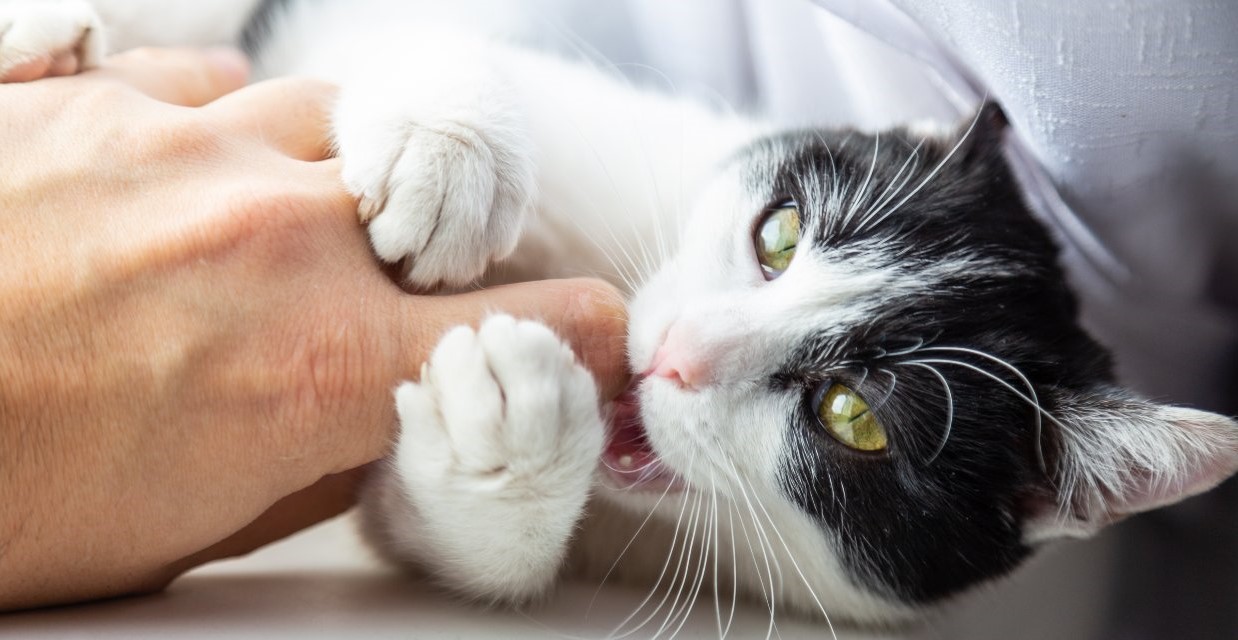Cats are natural predators and biting is a normal feline behaviour. However, when it’s directed towards you, your children or guests it can become a real problem. Does your cat ever bite you unprovoked? Cat bites can be painful and may require medical attention.
So why do cats bite and how can you stop them?
The most common reasons why cats bite include:
In Play
Kittens bite in play and some people make the mistake and playing with their kitten or adult cat with their hands or feet. This can teach the cat that hands and feet are fun to bite and play with.
To avoid being bitten by your cat in play, it’s best to avoid playing with your cat with your hands or feet.
Instead, encourage to bite their toys.
To avoid being Patted, Handled or Picked Up
Some cats bite to communicate that they want patting to stop or that they don’t want to be picked up or handled (e.g. brushed).
They learn that biting works because when they bite we put them down, let them go or stop patting them.
To avoid being bitten in these situations you can use a consent test when patting them. This means giving your cat a short soft pat under their chin and removing your hand. What does your cat do? Do they try to initiate more patting? Or do they move away? Your cat will tell you through their body language if they want the patting to continue. By giving your cat the choice, you minimise their need to use aggression and bite you.
Misdirected Predatory Aggression
Does your cat ambush and bite you in the mornings or evenings? Cats retain the instinct to hunt and stalk, even though they don’t need to hunt for their own food.
It’s important you provide appropriate outlets for hunting and stalking behaviour otherwise your cat may start to hunt and stalk you!
This is known as misdirected predatory aggression. Providing your cat with a variety of toys that mimic prey and daily play sessions in the morning and evening can help curb misdirected predatory aggression and your cat’s inclination to bite you.
Because they’re Scared
Some cats bite people because they’re scared. Unfamiliar guests, children and the vet can be scary for some cats and may get bitten if they approach or attempt to pat a scared cat.
If you think your cat might be afraid, ensure you provide lots of elevated places for your cat to get up high and away from the person they’re scared of.
Ask the visitors not to interact with your cat. Instead, they can throw some treats for your cat to begin to build a positive association with their presence. This will help your cat learn they need not be afraid.








